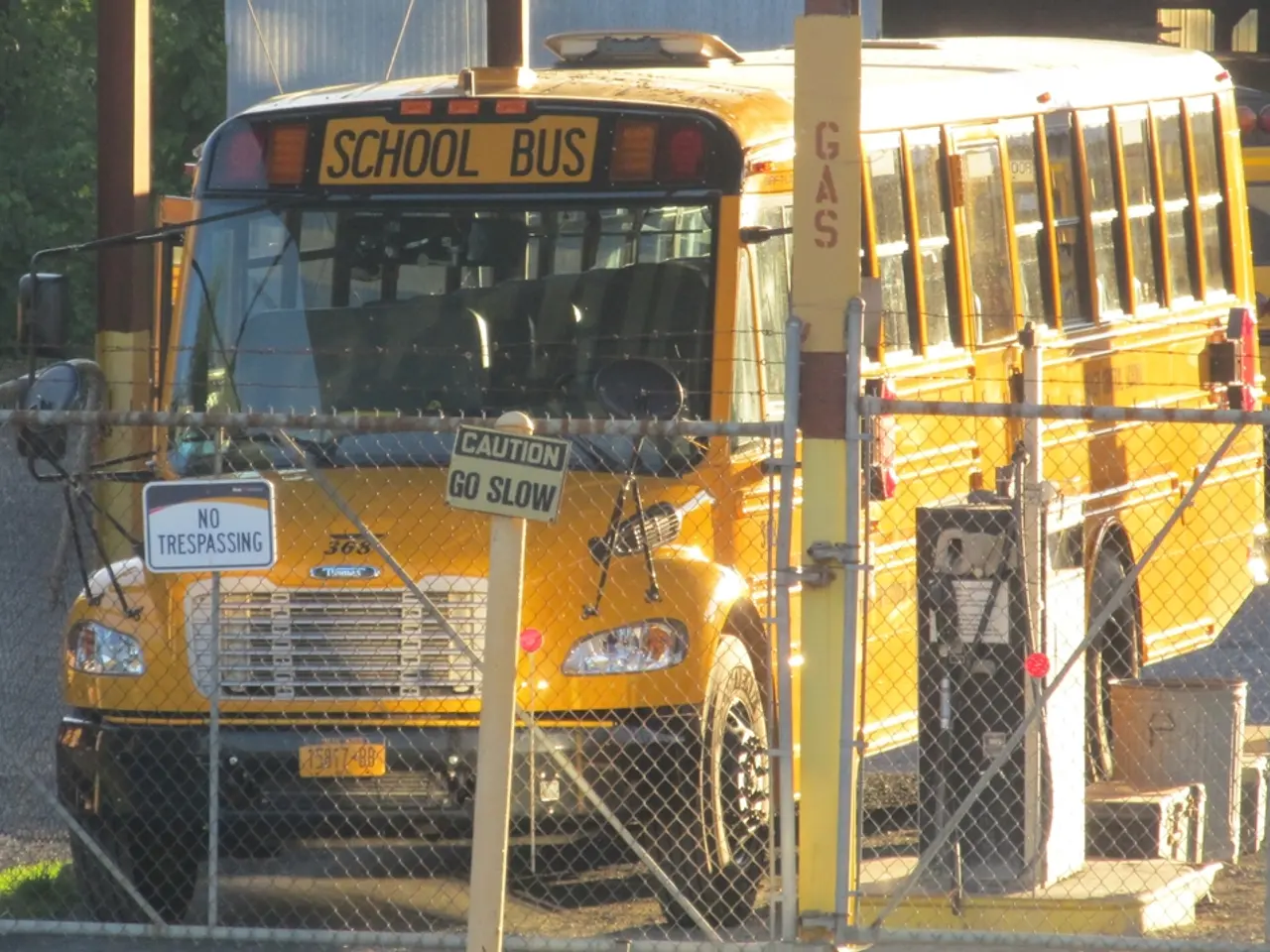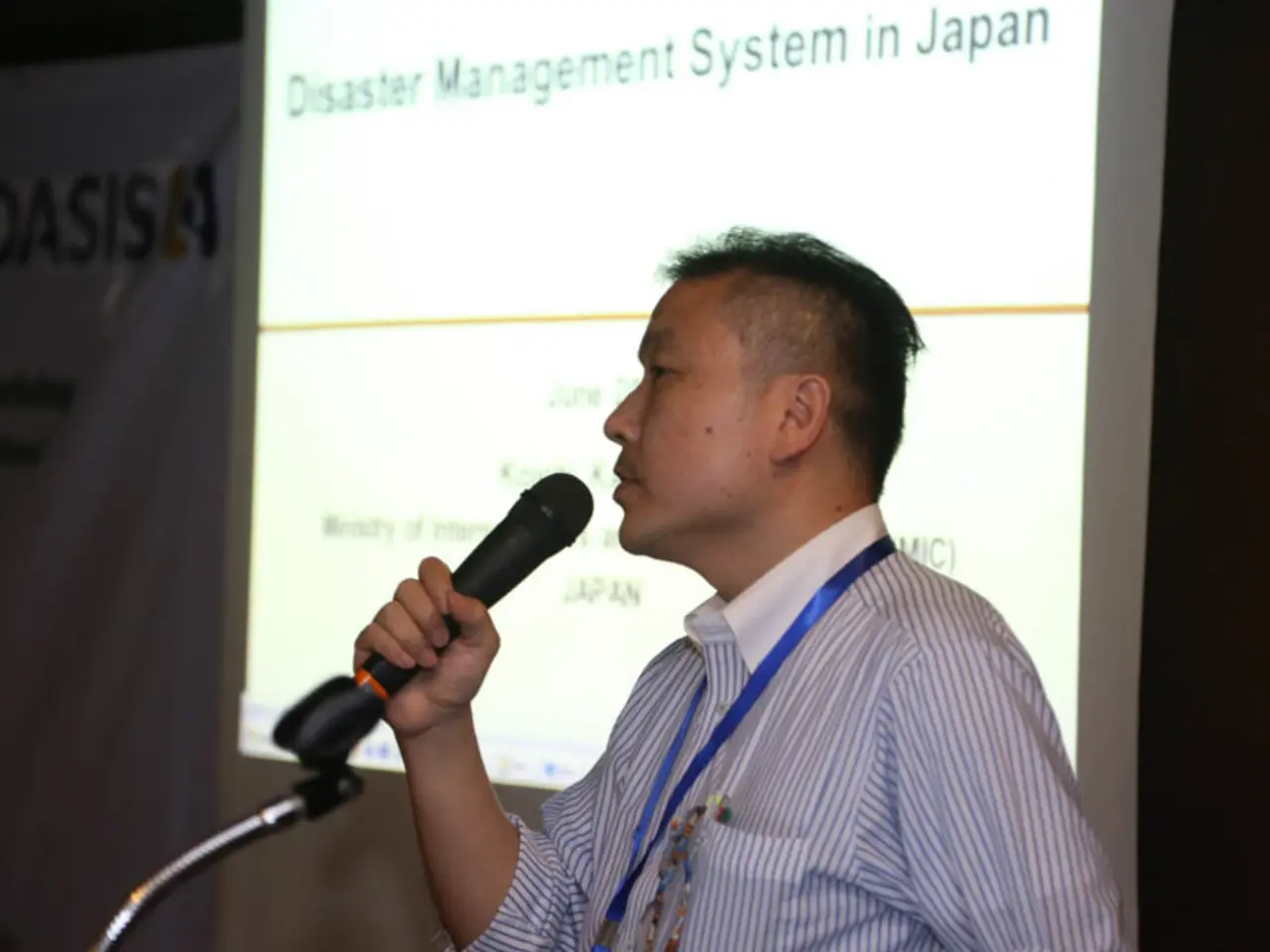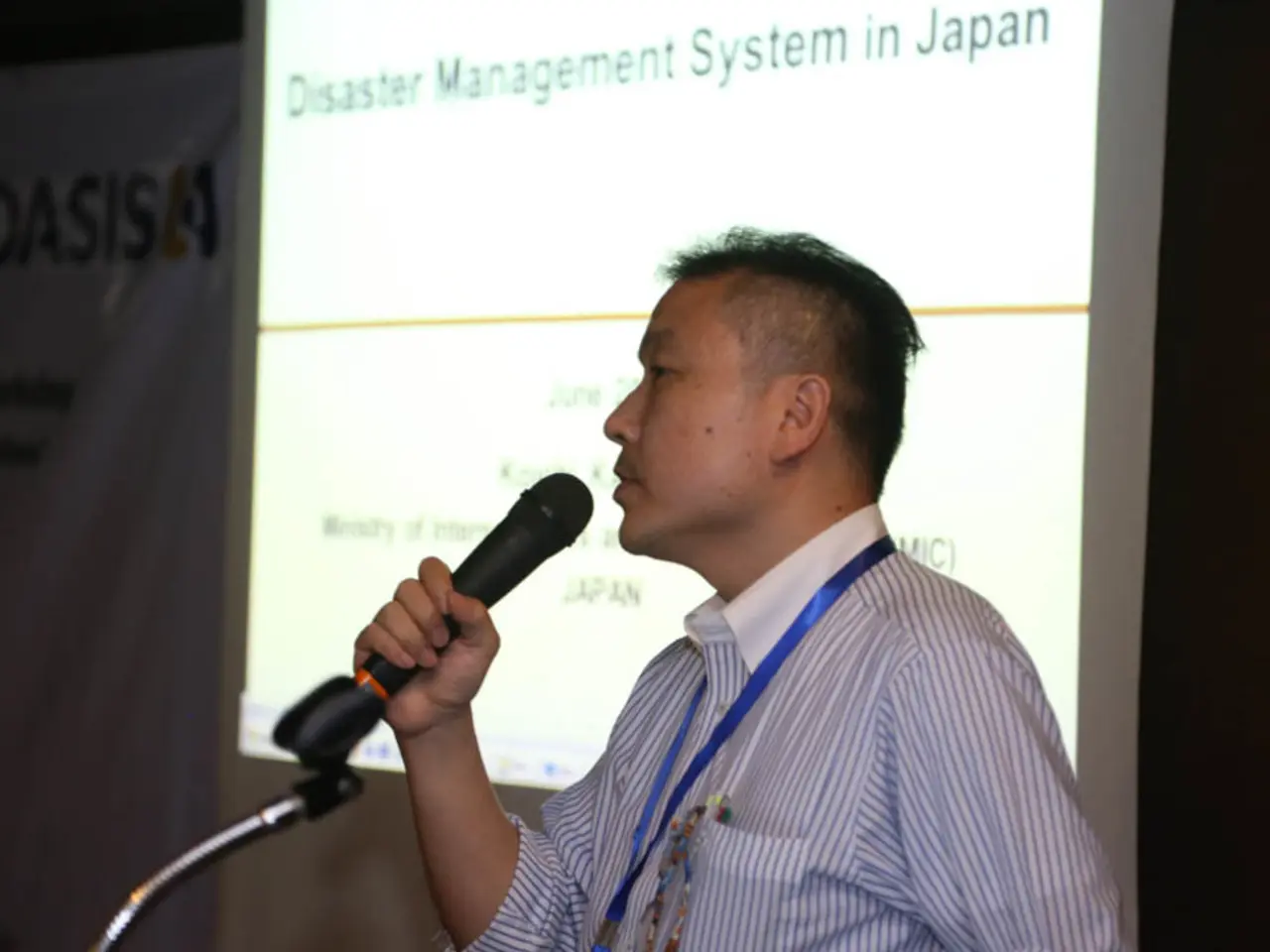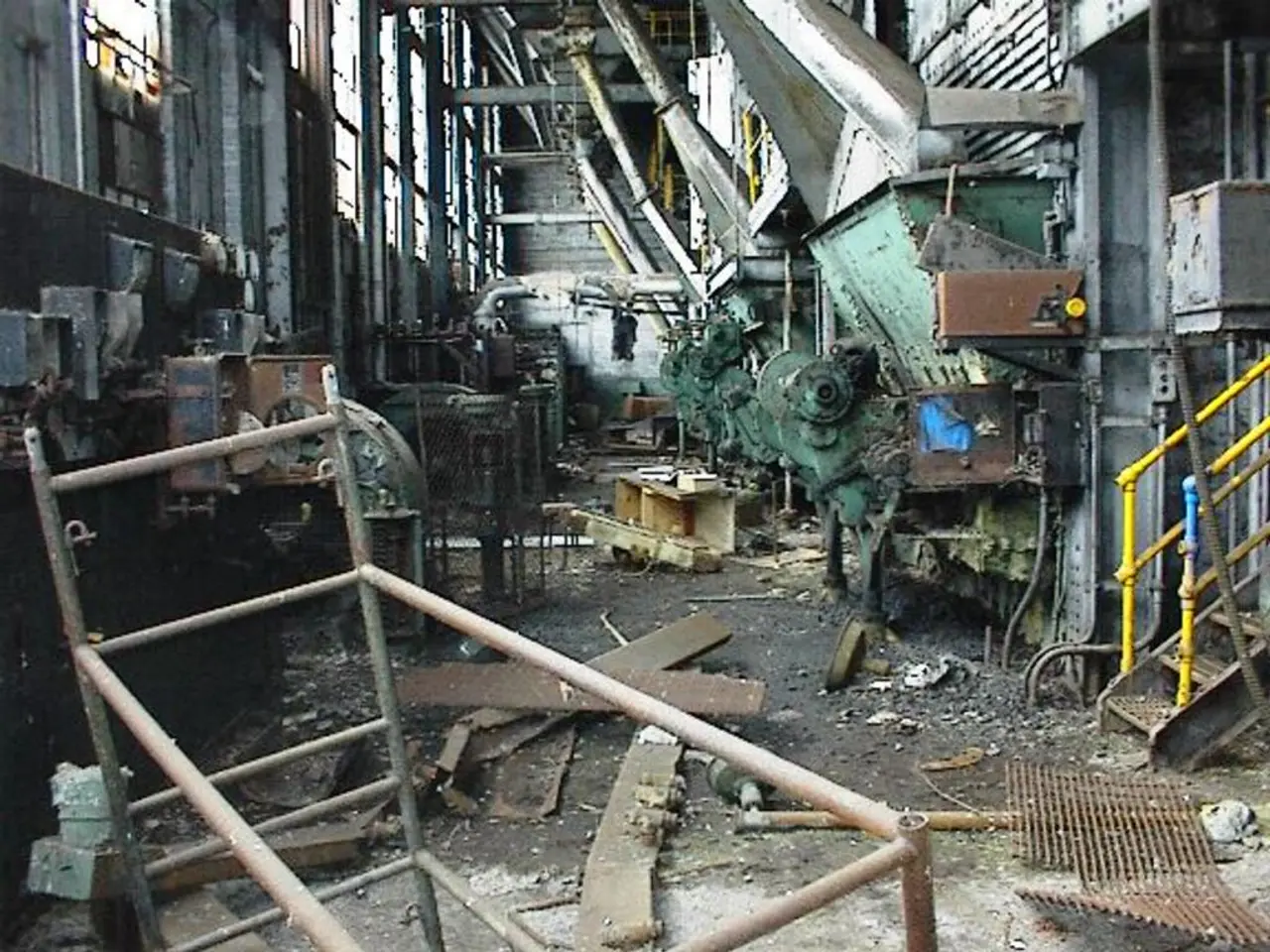Lawmakers deliberate on granting exemptions for rural regions from mandatory green transportation regulations
Latvia is making strides in electrifying its public transport system, with a focus on large infrastructure projects and renewable energy development. The Rail Baltica main line construction and its electrification, scheduled for completion by around 2030, is a key priority [1]. This project primarily aims to improve rail connectivity rather than road-based rural public transport.
In terms of clean energy, Latvia is increasing its renewable electricity generation capacity. Notable financing has been allocated for solar parks capable of generating 329 MW, which could indirectly support electric transport by providing cleaner grid power [2]. Wind farm projects are also underway, with the government supporting the country's aim for climate neutrality by 2050 [3]. These renewable energy developments are crucial for enabling transport sector decarbonisation, including public transport electrification.
However, challenges arise when it comes to rural public transport electrification. Infrastructure availability, such as charging stations and grid capacity, pose significant obstacles. Global discussions in developing markets, which Latvia's rural areas may resemble in terms of transport electrification, highlight the need for:
- Rapid adoption of electric buses and vehicles
- Expansion of charging infrastructure
- Innovative business models like battery leasing or swapping
- Support from development finance and clear policy targets to incentivize EV adoption
- A just transition for communities dependent on fossil fuels [4]
EU regulations from 2025 onwards mandate that newly purchased buses for public transport must be zero-emission, stimulating significant growth in electric bus fleets, particularly in cities and more developed areas. Rural areas may face additional infrastructure and cost challenges [5].
Key figures in Latvia's government are discussing these challenges. The Transport Minister, Kaspars Briškens, supports the electrification of transport but suggests it should be done sensibly and only in busier areas [6]. Prime Minister Evika Siliņa (New Unity) proposes discussing the border exercises mentioned by Minister of the Interior Rihards Kozlovskis, where difficulties have been identified [7]. Climate and Energy Minister Kaspars Melnis (Greens and Farmers Union) suggests reviewing the public procurement requirements for new public vehicles and public transport services [8].
Valainis, a political figure, often discusses the challenge of electric bus usage in sparsely populated municipalities with their leaders [9]. The purchase of electric buses in rural areas presents a significant infrastructure challenge, with municipalities finding it difficult to make full use of them [10]. Valainis questions the practicality of using electric buses in rural areas, stating "You can buy them, but how meaningful is using them there?"
Despite these challenges, there are potential solutions. Biomethane could potentially be produced in Latvia, and this could be discussed as an option for rural public transport [11]. Further targeted policies or projects would be needed to address rural infrastructure challenges and the adoption of electric or alternative fuel vehicles outside urban centers.
In conclusion, while Latvia is investing heavily in transport electrification infrastructure and renewable energy, specific rural public transport electrification discussions appear nascent or embedded within broader electrification policies. More targeted initiatives will be necessary to address the unique challenges of rural electrification and promote a greener public transport system across the country.
[1] [2] [3] Source: Latvian Transport Ministry, European Commission [4] [5] Source: International Energy Agency, European Commission [6] [7] [8] [9] [10] [11] Source: Interviews, Latvian media reports
- The development of electrified public transport systems in Latvia, particularly in rural areas, requires innovative solutions like the expansion of charging infrastructure, supportive policy targets, and innovative business models to overcome infrastructure availability challenges and incentivize EV adoption.
- In order to achieve a greener environment and combat climate change, it's crucial for Latvia's policy-and-legislation makers to consider environmental-science findings and implement strategies that focus on developing infrastructure for renewable energy and electric transport, not just in cities but also in rural areas.
- The success of transport sector decarbonisation in Latvia, including rural public transport electrification, will largely depend on the rapid adoption of electric buses and vehicles, and the efficient development and deployment of charging infrastructure across the country.
- Addressing the unique challenges of rural electrification and promoting a greener public transport system in Latvia requires collaboration between stakeholders in politics, policy-and-legislation, and scientific communities, along with the consideration of alternative fuel sources like biomethane for rural public transport.





